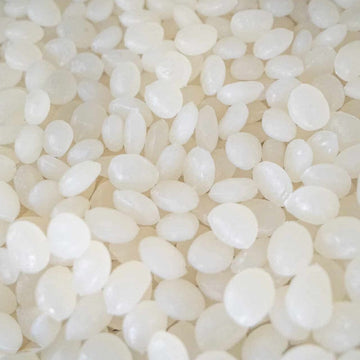
PHA Pellets
PHA Pellets are produced from polyhydroxyalkanoates (PHA), a fully biodegradable and compostable polymer naturally synthesized by microorganisms. Made from renewable resources like plant oils or sugars, PHA breaks down in both industrial and home composting environments—and even in marine settings—making it one of the most eco-friendly bioplastics available today.
Ideal for businesses committed to reducing plastic pollution, PHA offers excellent performance across a range of uses, including packaging, agriculture, medical applications, and single-use items. Its biodegradability in diverse environments makes it especially valuable for products likely to enter natural ecosystems.
Key Features:
- Made from renewable, natural feedstocks
- Fully biodegradable in soil, marine, and composting environments
- Suitable for packaging, agricultural films, medical products, and more
- Non-toxic, sustainable alternative to conventional plastics
Choose PHA Pellets to lead the way in environmental responsibility while maintaining versatility and product quality.
FAQ
What are biodegradable plastic pellets?
Biodegradable plastic pellets are small granules made from materials such as polylactic acid (PLA), polyhydroxyalkanoates (PHA), or starch blends. These pellets are designed to break down naturally into water, carbon dioxide, and biomass under specific environmental conditions, such as industrial composting facilities. They are used as raw materials in manufacturing eco-friendly products like packaging, utensils, and agricultural films.
How are biodegradable plastic pellets different from traditional plastic pellets?
Traditional plastic pellets are typically made from petroleum-based polymers like polyethylene or polypropylene, which take hundreds of years to degrade. In contrast, biodegradable pellets are made from renewable resources and are engineered to decompose within months to a few years under proper conditions. This makes them a more sustainable choice for reducing long-term environmental pollution.
What are the key applications of biodegradable plastic pellets?
Biodegradable plastic pellets are versatile and can be used in:
- Packaging: Producing biodegradable bags, food containers, and wraps.
- Agriculture: Making mulch films, seed coatings, and plant pots.
- Consumer Goods: Manufacturing disposable cutlery, straws, and plates.
- Healthcare: Developing medical products like dissolvable sutures and drug delivery systems.
Their usage aligns with growing global efforts to reduce plastic waste and promote sustainable development.

